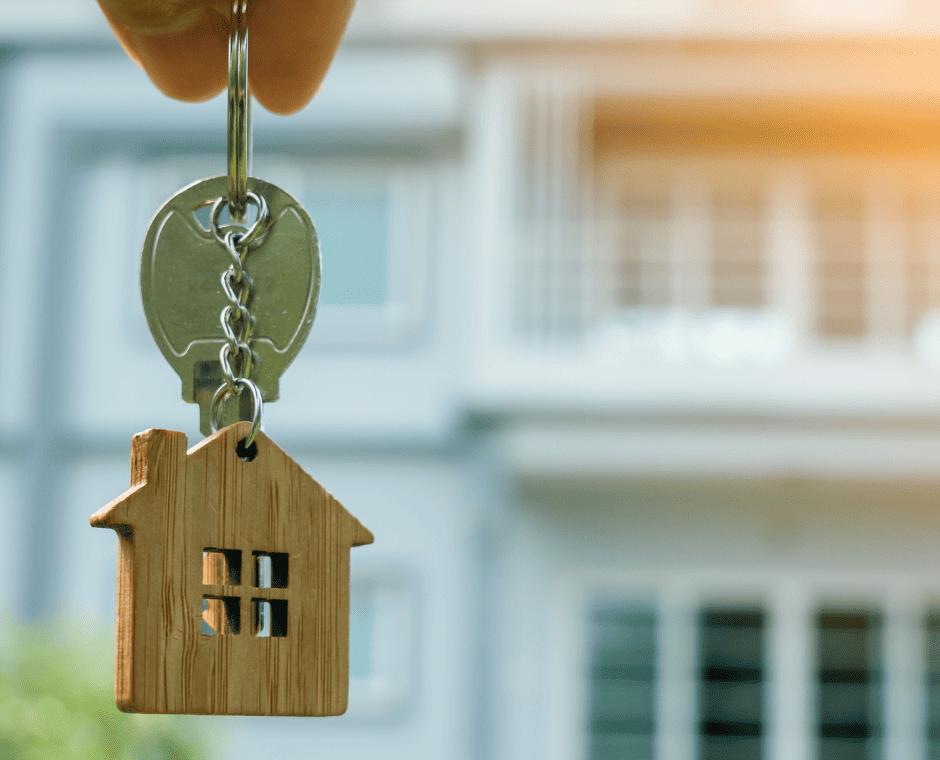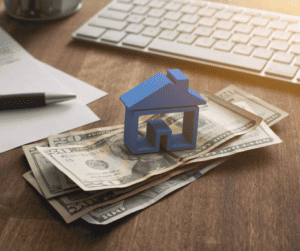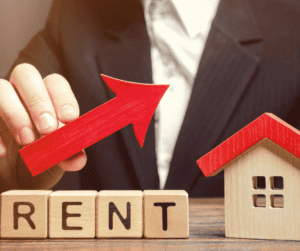Expand Your Business, Not Just Your Space: A Small Business Owner’s Guide to Strategic Growth
- June 19, 2024
- Commercial
Expanding Your Small Business: The Why and How
As a small business owner, the decision to expand your operations can be…
Read More
Rental property investing offers a unique opportunity for building long-term wealth and passive income. By owning and renting out real estate, investors can generate consistent cash flow each month with relatively minimal effort. According to Investopedia, rental income is considered one of the most stable and predictable sources of passive income.
There are various real estate investment strategies, but owning rental properties stands out for several reasons. Unlike flipping houses or wholesaling, rentals provide ongoing income that hedge against volatility in housing prices. Rental properties can also benefit from appreciation over time as the mortgage is paid down and the property value increases. Additionally, Investopedia notes that rental real estate provides tax advantages that may not be available with other investments.
For those seeking an attractive passive income stream, rental properties offer a relatively hands-off approach once acquired and rented. The primary responsibilities involve finding tenants, collecting rent, handling maintenance, and managing expenses. But the rest of the time the property can run itself while steadily generating cash flow each month. With careful research and planning, rental properties offer a potentially lucrative path to financial freedom.
When financing a rental property, you have several options to choose from based on your financial situation and investment goals. Common ways to finance a rental property include:
You can get a conventional mortgage from a bank or credit union to finance up to 80% of the purchase price of the rental property. You’ll need a down payment of at least 20%, good credit, and sufficient income to qualify. Conventional loans typically have lower interest rates than other options. See this article for more on conventional mortgages.
FHA loans only require a 3.5% down payment and are a popular financing choice for first-time rental property buyers. However, FHA loans charge mortgage insurance premiums that increase your overall costs. Learn more about FHA loans for rental properties here.
If you have equity built up in an existing property, you can tap into it to finance a rental purchase via a home equity loan or cash-out refinance. This allows you to avoid a large downpayment. Be aware of the risks of tapping home equity. See this overview of using home equity.
Hard money loans are financed by private investors and facilitate quick financing for those who may not qualify for traditional loans. However, hard money loans typically have higher interest rates and fees. Learn more about hard money loans here.
Some other creative options are seller financing, partnering with private investors, or lease-to-own arrangements. These allow you to purchase the property with little to no money down but often involve higher costs or risks down the road.

Choosing the right rental property to invest in is crucial for maximizing returns. Here are some key factors to consider when evaluating potential rental properties:
Conduct market research on employment opportunities, population growth trends, home values, and rents in the area. Make sure there is strong demand and suitable renters for the type of rental property you are considering. Look at similar rental listings to gauge the going market rents as well.
Analyze the financial viability of the property using calculations like the 1% rule, capitalization rate, and cash flow. The 1% rule states that the monthly rent should be at least 1% of the total property cost. The capitalization rate compares the property’s net operating income to its market value. Cash flow looks at the projected income minus expenses. These metrics help determine if the property is priced right.[1]
Location is key – properties in desirable areas typically have higher occupancy and rents. Moreover, the property’s condition, amenities, age, and layout impact its ability to attract quality tenants. Newer properties or updated systems may require less maintenance too.
Consider whether a single-family home or multi-family building best suits your investment needs and capabilities as a landlord. Multi-family properties provide economies of scale, while single-family homes offer more flexibility.

As a rental property owner, you take on the responsibility of managing the property and any tenants. This involves a range of duties like finding tenants, handling maintenance, dealing with complaints, and ensuring smooth operations. Some key responsibilities include:
You need to market vacancies, show the property, screen applicants, run background checks, and select tenants (see Property Management: Definition, Roles, Types, and Duties). Look for tenants who will pay on time, comply with rules, and treat the property well. Check their credit, income, references, and rental history.
Research comparable rents in the area and set an attractive but profitable rate. Use a formal lease agreement outlining terms like amount due, payment date, length of occupancy, security deposit, and policies. Collect rent on time and enforce late fees if needed. Increase rent annually within legal limits.
Regularly maintain the property and make any necessary repairs. Be responsive to maintenance requests and issues reported by tenants. Keep the property in compliance with safety codes and regulations. Budget and save for future repairs and upgrades.
Consider hiring a property manager to handle day-to-day management of the rental, like marketing, tenant screening, maintenance, and rent collection, in exchange for a percentage of rent (see A Guide: What Does A Property Manager Do?). This can be worthwhile to reduce workload.
Have a plan to fill vacancies by marketing quickly and showing the unit. Follow legal processes for evictions if needed, like giving proper notices for nonpayment or lease violations (see 10 Common Property Manager Responsibilities). Minimize vacancies to ensure steady rental income.

There are several strategies real estate investors can use to maximize returns on their rental properties:
Making updates and renovations to a rental property can increase its value over time. Even small improvements like new floors or appliances can boost rents and demand. Bigger renovation projects like kitchen overhauls, additional bedrooms and bathrooms can yield substantial appreciation when it comes time to sell the property.
According to research, the nationwide average ROI for rental property renovations is about 70% [1].
Savvy investors review and increase rents annually based on market data. Gradually raising rents over time in line with area rates helps maximize ongoing income. It’s important to know the market rents and not increase too aggressively, which could lead to vacancies.
Look for opportunities to reduce operating expenses each year to improve cash flow. For example, negotiating with vendors, using DIY repairs, upgrading to energy efficient appliances, or appealing property tax assessments.
Rental properties provide beneficial tax advantages including depreciation deductions to reduce taxable income and 1031 exchanges to defer capital gains taxes on sales [2].
When selling a property, investors can use 1031 exchanges to avoid capital gains taxes by reinvesting in a new rental property, allowing them to continually increase the size of their real estate portfolio.
[1] https://www.rentseattle.com/blog/can-spending-money-on-your-rental-property-help-you-raise-your-profits [2] https://bfpminc.com/13-tips-for-maximizing-rental-income-as-a-landlord/

One of the most important parts of investing in rental properties is having a clear exit strategy for when you’re ready to sell or transition the property. There are several key options to consider:
Many investors aim to sell their rental property after a certain number of years for a profit. Appreciation and rising property values enable you to sell the home for more than you paid for it and the money invested in improvements. This exit strategy requires paying close attention to comparable sales and market trends to identify the optimal time to list the property. According to sources, taking advantage of hot real estate markets by selling near the top of the cycle is one of the most lucrative exit strategies.
After several years of mortgage payments and appreciation, your rental likely has significant equity. Refinancing or taking out a home equity line of credit enables you to access this equity for new investments. For example, you may opt to cash out refinance your first rental property to come up with a down payment on a second, larger multifamily building. This allows you to scale up your rental portfolio over time. Some investors also use equity to fund flipping or wholesaling deals.
The third option is to hold the rental property for the long-term. Keeping the asset can provide ongoing passive income, tax benefits, and diversification. Unless you need the capital, there may not be a compelling reason to sell a fully paid off rental property producing steady monthly cash flow. However, you need to weigh the benefits against the responsibilities of ongoing landlording. Hiring a property manager provides a more hands-off option.
Once you’ve decided to invest in rental properties, the first step is researching potential markets. Look at employment and population growth trends, median rents and home values, and demand for rentals. Create a shortlist of cities or neighborhoods you think could support your investment goals. For more on choosing the right market, check out this guide.
Next, put together a rental property business plan. Outline your financial goals, target returns, investment timeline, and criteria for selecting properties. Having a plan in place makes it easier to take action when you find the right opportunity.
Decide how much capital you can invest upfront and whether you’ll need financing. Speak with lenders about loans and interest rates. With your finances mapped out, you can set realistic investing goals. Aim to purchase your first rental in the next 6-12 months for example. For tips on creating a rental property business plan, check out BiggerPockets.
With research, planning, and goals in place, you’ll be prepared to start your rental property investing journey.
While rental property investing can provide excellent passive income, it also comes with some potential challenges that beginners should be aware of. Some of the key challenges include:
Having vacancies where your unit sits empty without rental income can significantly impact your bottom line. It takes time and effort to find qualified tenants, screen them, and turn over the unit when tenants move out. The costs continue even when vacant. According to Investopedia, vacancy rates average 5-15% in many markets, so expect around 1-2 months per year of lost income for typical vacancies and turnover time [1].
As a landlord, you are responsible for maintaining your rental property and making any necessary repairs – this includes general upkeep, emergency fixes, and responding to tenant requests. SteadyRent reports that maintenance costs average $1,500 per unit yearly. Unexpected major repairs like a roof replacement or HVAC unit failure can put thousands of dollars of unanticipated expenses on the landlord [2].
Managing the landlord-tenant relationship can also pose challenges at times. You may have to deal with late or missing rent payments, complaints about the property, conflicts between tenants, unreasonable maintenance requests, or even evictions. Strong screening and management practices are key to minimize headaches. Evernest notes the importance of clear policies and boundaries with tenants from the start [3].
While real estate values tend to appreciate over longer time horizons, there are periods when markets decline. Your rental property could potentially lose value or be difficult to sell in down markets. Location, purchase price, overall condition, and macroeconomic factors all impact value. During downturns, focus on maintaining positive cash flow.
Many new real estate investors have common questions when getting started with rental properties. Here are answers to some of the most frequently asked questions about buying, financing, managing, and profiting from rental properties.
Ongoing expenses include property taxes, insurance, regular maintenance and repairs, possibly a property manager, utilities if not paid by the tenant, vacancy costs between tenants, and capital expenditures like roof or appliance replacement over time. Be sure to budget for these costs when evaluating investment properties.[1]
Run tenant background and credit checks, verify income and employment, call previous landlord references, and do in-person showings to get a sense of prospective tenants. A thorough screening process helps avoid problem tenants and vacancies down the road.[2]
Many investors, especially those with multiple properties or who live far from their rentals, find it worthwhile to hire a property manager to handle tasks like advertising, tenant screening, maintenance, and rent collection for a monthly fee. But you can potentially save money by doing it yourself if you have time.[3]
These frequently asked questions cover some key topics for beginning real estate investors. Learning the fundamentals helps ensure you start off your rental property business on the right foot.
[2] https://www.fortunebuilders.com/how-to-buy-your-first-investment-property/
[3] https://www.zillow.com/rental-manager/
To summarize, rental property investing can provide passive income and long-term wealth building, but it requires research, capital, and ongoing responsibilities. Key takeaways include:
The first step is to thoroughly research potential rental property markets in your area or other regions of interest. Analyze purchase costs, expected rents, taxes, insurance, fees, and projected expenses. Run the numbers to see if properties will cash flow positively.
If rental property investing aligns with your financial goals, the time is right to start taking action. Speak to lenders about financing options. Connect with real estate agents knowledgeable about the local rental market. Begin viewing properties that meet your investment criteria. With careful research and financial planning, rental property investment can ultimately lead to financial freedom.
Join The Discussion